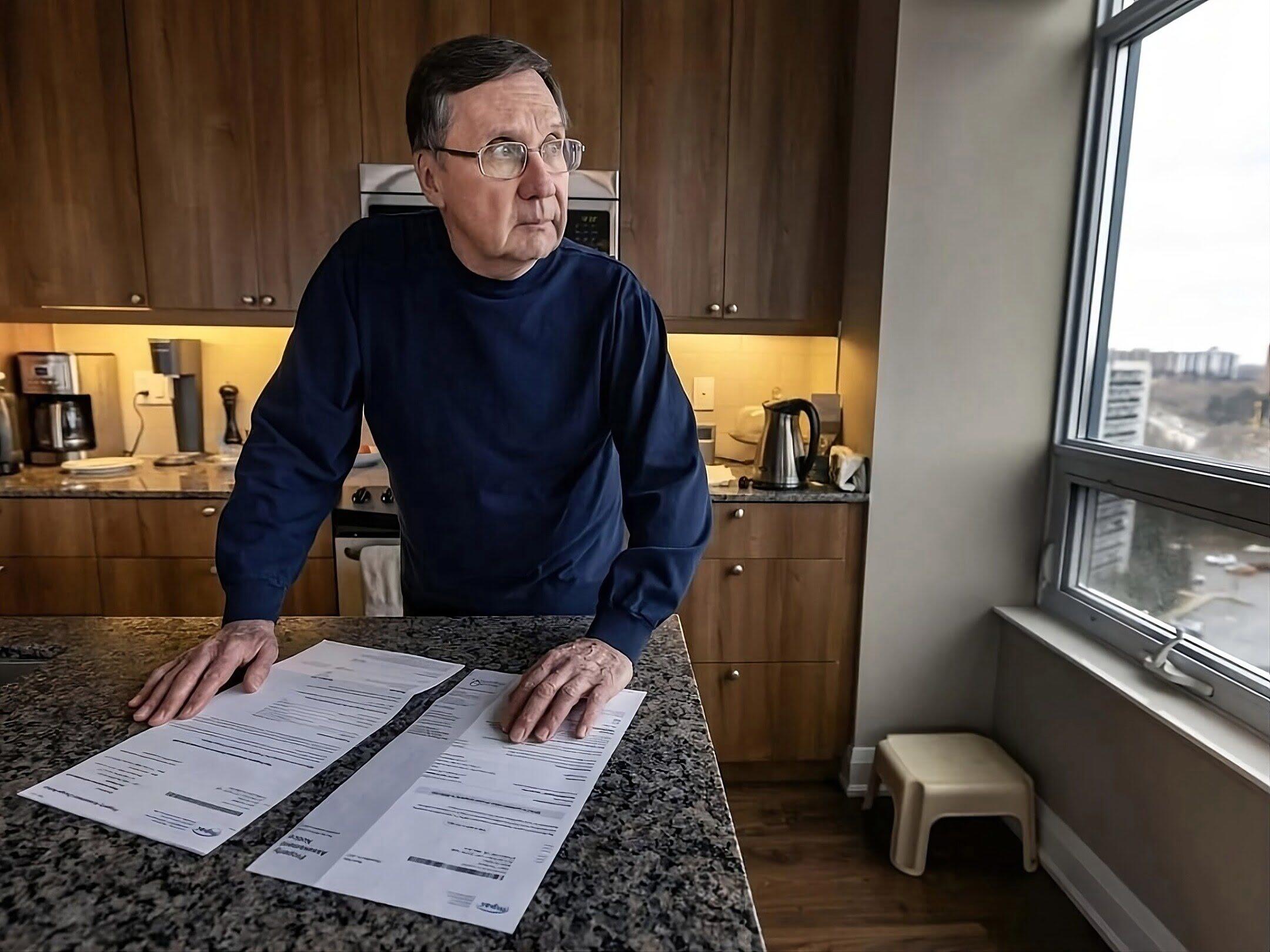Home>Home Maintenance>What Is The Timeline For Closing After A Property Inspection


Home Maintenance
What Is The Timeline For Closing After A Property Inspection
Modified: March 6, 2024
Know the timeline for closing after a home inspection in Minnesota. Find out how long buyers have to complete their purchase. Expert tips on home maintenance.
(Many of the links in this article redirect to a specific reviewed product. Your purchase of these products through affiliate links helps to generate commission for Storables.com, at no extra cost. Learn more)
Introduction
Buying a home is an exciting and complex process, with numerous steps involved to ensure a smooth and successful transaction. One crucial step in this process is the home inspection, where a professional inspector evaluates the property’s condition to identify any potential issues or hazards. This inspection provides buyers with valuable information to make an informed decision before proceeding with the purchase.
In the state of Minnesota, as in many other states, buyers typically have a specified period of time to conduct a home inspection after an offer has been accepted. This time frame allows buyers to thoroughly examine the property and determine if any repairs or negotiations are necessary to proceed with the purchase. However, once the inspection is complete, buyers may be wondering how long they have to close on the property.
Understanding the timeline for closing after an inspection is essential for buyers in Minnesota. In this article, we will delve into the details of Minnesota’s homebuying process, explore the importance of closing in a timely manner, discuss the specific time frames for closing, and address contingency periods and extensions. Let’s dive in!
Key Takeaways:
- Buyers in Minnesota typically have 30-45 days to close after a home inspection. It’s crucial to communicate openly and manage tasks diligently to ensure a smooth and successful closing process.
- Failing to close on time can lead to financial penalties, loss of earnest money, and even legal action. Open communication and proactive planning are essential to avoid potential complications.
Read more: What Is Property Assessment Profile
Understanding Inspections in Minnesota
In Minnesota, home inspections are a standard part of the home-buying process. Before finalizing the purchase, buyers have the right to hire a professional home inspector to conduct a thorough examination of the property. The inspector will assess various aspects of the home, such as the structure, electrical systems, plumbing, HVAC systems, and more.
A home inspection is crucial as it provides buyers with a comprehensive understanding of the property’s condition. It helps identify any potential issues, defects, or safety concerns that may not be apparent upon a casual inspection. Armed with this information, buyers can make informed decisions about the property and negotiate any necessary repairs or concessions.
Typically, a home inspection in Minnesota takes place shortly after the seller accepts the buyer’s offer. The inspection period is typically governed by the Purchase Agreement, which sets a specific timeframe during which the inspection must be completed. It is in the buyer’s best interest to schedule the inspection as soon as possible to allow ample time for negotiations and decisions.
During the inspection, the home inspector will thoroughly examine the property, documenting any deficiencies or issues in a detailed report. This report serves as a valuable reference document for buyers, providing a detailed breakdown of the property’s condition.
It’s important to note that the home inspector’s role is to objectively evaluate the property’s condition. They are not responsible for determining the value of the home or predicting future issues. Instead, their focus is on identifying existing problems that may impact the buyer’s decision or require attention before closing the deal.
Once the inspection is complete, buyers can review the findings with their real estate agent and determine the next steps. If significant issues arise, buyers may choose to negotiate with the seller to resolve them. Alternatively, buyers may decide to proceed with the purchase as planned, taking into account the necessary repairs or adjustments needed.
Understanding the inspection process in Minnesota is crucial for buyers to navigate the buying process successfully. By comprehensively examining the property and addressing any concerns that arise, buyers can make informed decisions and ensure a smooth closing process.
The Importance of Closing in a Timely Manner
Closing on a home in a timely manner is of paramount importance for both buyers and sellers. When a deal is struck, it is usually with the intention of completing the transaction within a specified period. Closing on time ensures a smooth transition of ownership and prevents potential complications and delays.
One of the main reasons why closing on time is crucial is financial. Buyers may have secured mortgage financing and locked in an interest rate based on a specific closing date. Any delay in closing can result in financial consequences, such as additional interest charges, rate lock extensions, or even the possibility of losing the mortgage approval altogether, leading to the collapse of the deal.
Sellers also have financial considerations tied to the closing date. They may have made plans to use the proceeds from the sale to purchase their next home or cover other expenses. Delays in the closing process can disrupt these plans, causing unnecessary stress and financial strain.
Furthermore, closing delays can introduce uncertainties and risks. For buyers, a delayed closing may impact their ability to secure suitable housing if they need to vacate their current residence by a specific date. It can also result in additional expenses, such as storage costs or temporary housing, if the delay spans a significant period.
Sellers, on the other hand, may become wary of the buyer’s commitment if the closing is delayed significantly. They may question the buyer’s ability to fulfill their contractual obligations, potentially leading to renegotiations or even the termination of the agreement.
In addition to the financial implications, closing on time also helps maintain a positive relationship between the buyer and the seller. A smoothly executed closing process fosters trust and goodwill among both parties. It demonstrates professionalism, respect, and a commitment to honoring the agreed-upon terms.
Timely closings are not only beneficial for individual buyers and sellers but also for the real estate market as a whole. A steady flow of completed transactions contributes to market stability, supporting property values and overall economic growth. Delays in closing can disrupt this stability, leading to potential ripple effects on the market.
Ultimately, closing on time is essential for a successful and satisfactory home buying experience. Buyers and sellers should proactively communicate, stay organized, and work together to ensure a seamless and timely closing process. By doing so, both parties can enjoy the benefits of a completed transaction and move forward with their respective plans.
Timeframes for Closing After an Inspection
After an inspection is conducted on a property in Minnesota, there are specific timeframes that govern the closing process. These timeframes are typically outlined in the Purchase Agreement, which is a legally binding contract between the buyer and the seller.
In Minnesota, the typical timeframe for closing after an inspection is around 30 to 45 days. This period ensures there is sufficient time for the buyer to review the inspection report, negotiate any repairs or concessions with the seller, and finalize the necessary paperwork.
During this timeframe, buyers should thoroughly review the inspection report and discuss any concerns or necessary repairs with their real estate agent. If there are significant issues discovered during the inspection, the buyer may choose to request repairs or concessions from the seller before proceeding with the closing.
In some cases, buyers may even choose to re-negotiate the price of the property based on the inspection findings. If major repairs or safety hazards are identified, buyers may ask for a reduction in the purchase price to compensate for the costs associated with addressing these issues after closing.
The specific timeline for negotiations and resolution of inspection-related issues is typically outlined in the Purchase Agreement. This allows both parties to navigate the process in a fair and timely manner.
It’s important to note that the closing period can be influenced by various factors such as the complexity of repairs, availability of contractors, and the coordination of inspections or appraisals. Therefore, it is essential for buyers to stay in close communication with their real estate agent and other relevant parties to ensure that all necessary tasks and negotiations are completed within the agreed-upon timeframe.
Buyers should be aware that failing to meet the closing deadline specified in the Purchase Agreement can have consequences. The seller may have the option to terminate the agreement, potentially leading to the loss of the earnest money deposit and the collapse of the deal.
In some situations, buyers may require additional time to complete the closing process after the inspection. This can occur if there are delays in securing financing, issues with the title search, or complications arising from contingencies outlined in the Purchase Agreement. In such cases, buyers can request an extension from the seller to allow for the necessary tasks to be completed before closing.
Overall, it is important for buyers in Minnesota to be familiar with the timeframes for closing after an inspection. By understanding these timeframes and diligently managing the necessary tasks and negotiations, buyers can ensure a smooth and efficient closing process.
In Minnesota, the typical timeline for a buyer to close after an inspection is around 30-45 days. It’s important to review the purchase agreement for specific deadlines.
Contingencies and Extensions
In the homebuying process, contingencies are provisions in the Purchase Agreement that allow buyers to cancel the contract or request changes based on specific conditions. These contingencies are put in place to protect buyers and ensure they have the opportunity to thoroughly evaluate the property before fully committing to the purchase.
One common contingency is the inspection contingency. This contingency allows buyers to conduct a professional home inspection and review the findings before proceeding with the closing. If significant issues or concerns are discovered during the inspection, buyers have the option to negotiate repairs or concessions with the seller or even withdraw from the agreement without penalty.
Contingencies typically have expiration deadlines, which outline the timeframe within which buyers must address any issues or concerns. These deadlines are crucial, as failing to meet them may result in the buyer losing their right to exercise the contingency and potentially face financial consequences.
However, there are situations where buyers may need more time to address contingencies and complete the necessary tasks. In such cases, buyers have the option to request an extension from the seller. An extension allows for additional time to negotiate repairs, obtain estimates, or conduct further inspections if needed.
The decision to grant an extension lies with the seller, who may consider various factors such as their own timeframe, the condition of the housing market, and the buyer’s circumstances. Buyers should communicate their request for an extension in a timely and professional manner, providing a clear explanation of why additional time is needed and any relevant supporting documentation.
It’s important to note that extensions can impact the entire closing timeline, as they may require adjustments to other contractual deadlines, such as the financing contingency or the closing date itself. Therefore, open and transparent communication between buyers, sellers, and their respective agents is crucial to ensure all parties are aware of the revised timeline and can plan accordingly.
Buyers should also be prepared for the possibility of the seller denying an extension request. In such cases, the buyer must adhere to the original timeline outlined in the Purchase Agreement or risk breaching the contract. This highlights the importance of careful planning and diligent management of contingencies to avoid any last-minute surprises.
In summary, contingencies provide buyers with essential protections during the homebuying process. Extensions can be requested if additional time is needed to address contingencies or complete necessary tasks. However, it is crucial for buyers to understand the implications of contingencies and extensions and to communicate effectively and professionally with the seller to ensure a smooth and successful closing.
Read more: What Are Property Assessment Caps
Negotiating an Extension
When buyers find themselves needing additional time to complete tasks or address contingencies in the homebuying process, negotiating an extension becomes an important consideration. An extension allows buyers to request more time from the seller to fulfill their obligations within the Purchase Agreement and ensure a successful closing.
When contemplating an extension, it is essential for buyers to approach the negotiation process with professionalism, clarity, and a well-thought-out plan. Here are some key steps to follow when negotiating an extension:
1. Assess the Situation: Evaluate the reasons for needing an extension, such as unexpected repair needs, delays in financing, or other unforeseen circumstances. Gather any supporting documentation or evidence that can help justify the need for more time.
2. Communicate Early: It is crucial to communicate the request for an extension to the seller as soon as possible. Keep the lines of communication open and transparent and provide a clear explanation of the circumstances that necessitate an extension.
3. Present a Compelling Case: When requesting an extension, provide a detailed breakdown of the tasks or contingencies that require additional time and explain how the extension will benefit both parties involved. Emphasize that the extension will allow for a smoother and more successful closing.
4. Be Flexible: Understand that the seller may have their own timeline and constraints. Be open to negotiations and compromising on the duration of the extension or any other terms that may help reach a mutually beneficial agreement.
5. Offer Incentives: To increase the likelihood of the seller granting an extension, consider offering incentives that could sweeten the deal. For example, offering to pay for any expenses incurred due to the extension or providing an increased earnest money deposit can show the seller your commitment to completing the transaction.
6. Put It in Writing: Once both parties have agreed to the terms of the extension, it is essential to document the agreement in writing. This can be done through an addendum to the Purchase Agreement, clearly outlining the revised deadlines and any other terms agreed upon.
7. Maintain Communication: Throughout the extended timeframe, it is crucial to maintain open communication with the seller and other relevant parties. Provide regular updates on progress and any potential changes to the closing timeline to ensure everyone is on the same page.
Remember, negotiating an extension is a delicate balance between the buyer’s needs and the seller’s expectations. By approaching the negotiation process with professionalism, understanding, and a focus on collaboration, buyers can increase their chances of successfully obtaining an extension and completing the necessary tasks before closing.
Potential Consequences of Not Closing on Time
Meeting the specified closing date outlined in the Purchase Agreement is crucial for both buyers and sellers in a real estate transaction. Failing to close on time can have significant consequences for all parties involved. Here are some potential repercussions of not closing on time:
1. Financial Penalties: When a buyer fails to close on time, they may be subject to financial penalties. These penalties can include daily or weekly extensions fees or additional costs incurred by the seller due to the delayed closing. It’s important to note that financial penalties can vary depending on the specific terms outlined in the Purchase Agreement.
2. Loss of Earnest Money: Earnest money is a deposit made by the buyer as a sign of good faith when submitting an offer on a property. If the buyer fails to close on time without a valid reason, the seller may have the right to keep the earnest money as compensation for the breach of contract.
3. Termination of the Agreement: If the buyer consistently fails to close on time and does not make alternative arrangements with the seller, the seller may choose to terminate the Purchase Agreement. This termination can result in the collapse of the deal, leading to the buyer losing the opportunity to purchase the property.
4. Legal Action: In extreme cases, if one party fails to close on time and breaches the terms of the Purchase Agreement, the other party may take legal action. Legal proceedings can be time-consuming and costly for both parties involved, potentially leading to further financial and emotional stress.
5. Damage to Reputation and Relationships: Failing to close on time can damage the buyer’s reputation within the real estate community. It can lead to strained relationships with real estate agents, lenders, and other professionals involved in the transaction. Word of mouth travels fast, and a buyer who consistently fails to close on time may find it difficult to navigate future real estate transactions.
6. Disruption of Plans: Delayed closings can disrupt the plans and schedules of both buyers and sellers. Buyers looking to move into their new home may face temporary housing challenges or the need to extend rental agreements. Sellers who are transitioning to a new property may face complications in coordinating their move or securing a new residence.
It is essential for buyers to understand the potential consequences of not closing on time and to communicate openly and proactively with the seller if they anticipate any challenges or delays. By working together and seeking alternative solutions, such as extensions or renegotiating the closing timeline, both parties can mitigate the risks and negotiate a mutually agreeable resolution.
Ultimately, closing on time is in the best interest of all parties involved. It ensures a smooth and seamless transaction, preserves trust and goodwill, and allows both buyers and sellers to move forward with their respective plans.
Conclusion
The homebuying process in Minnesota involves various steps and considerations, and one important aspect is the closing timeline after an inspection. Understanding the timeframes and contingencies associated with the closing process is crucial for buyers to navigate the process successfully and avoid potential complications.
After conducting a thorough inspection, buyers typically have a specified period of time to negotiate any repairs or concessions with the seller. This timeframe allows buyers to address any issues discovered during the inspection and ensure that the property meets their expectations before proceeding with the closing.
Buyers should be aware of the potential consequences of not closing on time, including financial penalties, loss of earnest money, and even legal ramifications. It is important for buyers to communicate openly and proactively with the seller if they anticipate any challenges or delays to explore options such as extensions or renegotiating the closing timeline.
Additionally, understanding the importance of closing in a timely manner benefits both buyers and sellers. Closing on time ensures a smooth transition of ownership, protects financial interests, and maintains positive relationships throughout the transaction.
In conclusion, buyers in Minnesota should be diligent in managing the closing process after an inspection. By understanding the timeframes, negotiating extensions when necessary, and communicating effectively with all parties involved, buyers can ensure a successful and satisfactory closing on their new home.
Frequently Asked Questions about What Is The Timeline For Closing After A Property Inspection
Was this page helpful?
At Storables.com, we guarantee accurate and reliable information. Our content, validated by Expert Board Contributors, is crafted following stringent Editorial Policies. We're committed to providing you with well-researched, expert-backed insights for all your informational needs.














